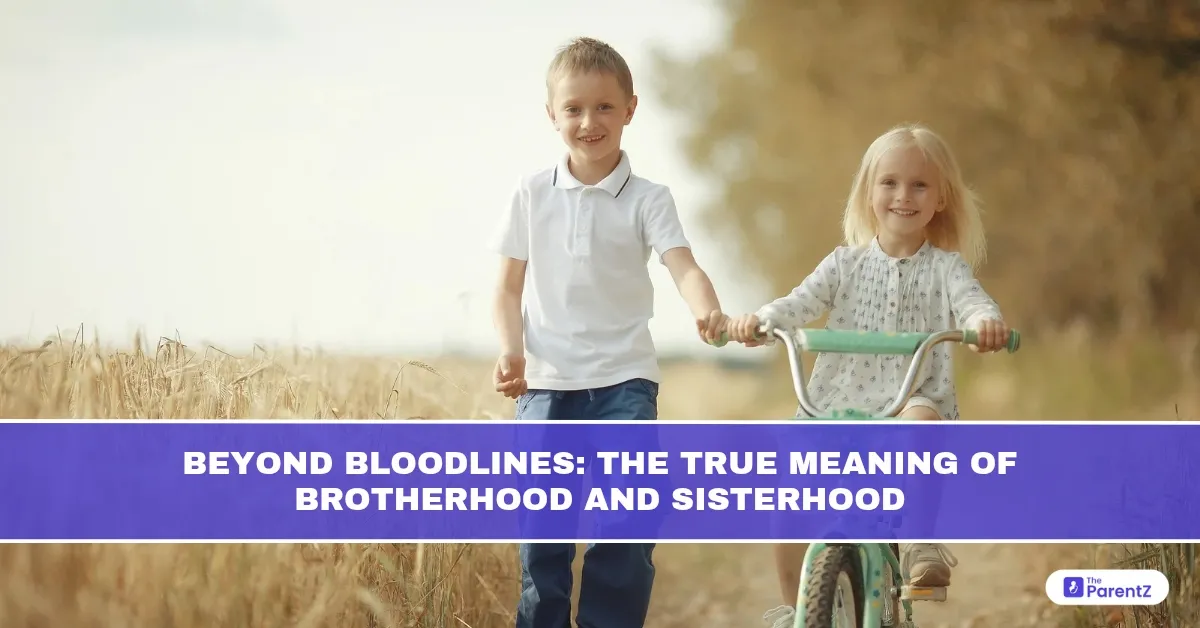You’ve watched your kids fight over the last piece of chocolate, scream over who got to push the elevator button, and claim with great pride that the dog loves them more. And in those moments, you may have wondered—Will they ever truly get along?
But then, out of nowhere, you see it: your older one offering their favorite toy when the younger is crying. Or the little one standing up fiercely for their sibling at school. And suddenly, it hits you—this is what brotherhood and sisterhood really mean.
Read this article to explore the real meaning behind brotherhood and sisterhood.
It’s Not Just About Sharing a Room—It’s About Sharing a Life
When you’re raising kids, you hope they’ll be close. You try to teach kindness, encourage team games, and model healthy conflict. But the truth is, the bond they’re forming runs deeper than anything you could orchestrate. It grows slowly—through scraped knees, bedtime stories, school projects, and whispered secrets.
They’re building history together. One chaotic, hilarious, heartwarming day at a time.
Brotherhood and Sisterhood Are Lifelong Lessons in Love
Your kids don’t always realize it, but they’re each other’s first teachers. They’re learning how to negotiate, forgive, stand up for themselves—and for someone else. These daily interactions? They’re shaping who your kids will become as partners, friends, and parents someday.
When your child learns to comfort a sibling, they’re learning empathy. When they wait their turn, they’re learning patience. When they mess up and say sorry? They’re learning humility. These lessons go far beyond the playroom.
The Role of a Sibling Isn’t Always by Blood
Sometimes, your child may bond with a cousin, a best friend, or even a neighbor who becomes “like family.” And that’s the beauty of it—siblinghood doesn’t always follow bloodlines.
You’ll see your child develop a bond with someone who just gets them—who shows up, makes them laugh, listens when they’re hurt. Encourage those connections. These chosen siblings often become the ones who stay close long after school ends and life moves on.
When They Fight (Because They Will), It’s Still Worth It
Let’s be real—there will be shouting. Toys will be snatched. Doors will be slammed. And in those moments, you might question whether any of the “bonding” is actually working. But even conflict has a purpose. It teaches boundaries. It teaches negotiation. And most of all, it teaches that love doesn’t vanish just because you’re angry.
Siblings fight. But they also forgive. And through that rhythm of friction and repair, a lasting connection forms.
You’re the Mirror They’re Watching
Here’s the quiet truth—you are their model. The way you speak to your partner, your friends, your own siblings—that’s shaping how your kids learn to love and relate to each other.
When you show grace, they absorb it. When you apologize after losing your cool, they learn courage. Your words matter, yes—but it’s your actions that echo loudest in their hearts.
What Matters Most Is the Feeling
Years from now, they may not remember who got which seat in the car or who spilled juice on the rug. But they will remember how they felt around each other. Safe. Seen. Loved.
And when the world feels overwhelming—when their friends change, when jobs move them far apart, when life throws its curveballs—it’s that bond that will stay rooted.
Conclusion
So, if your kids aren’t always hugging it out or braiding each other’s hair—don’t worry. Brotherhood and sisterhood aren’t about picture-perfect moments. They’re about growing up side by side. Sometimes clashing. Sometimes cuddling. Always connected.





Be the first one to comment on this story.